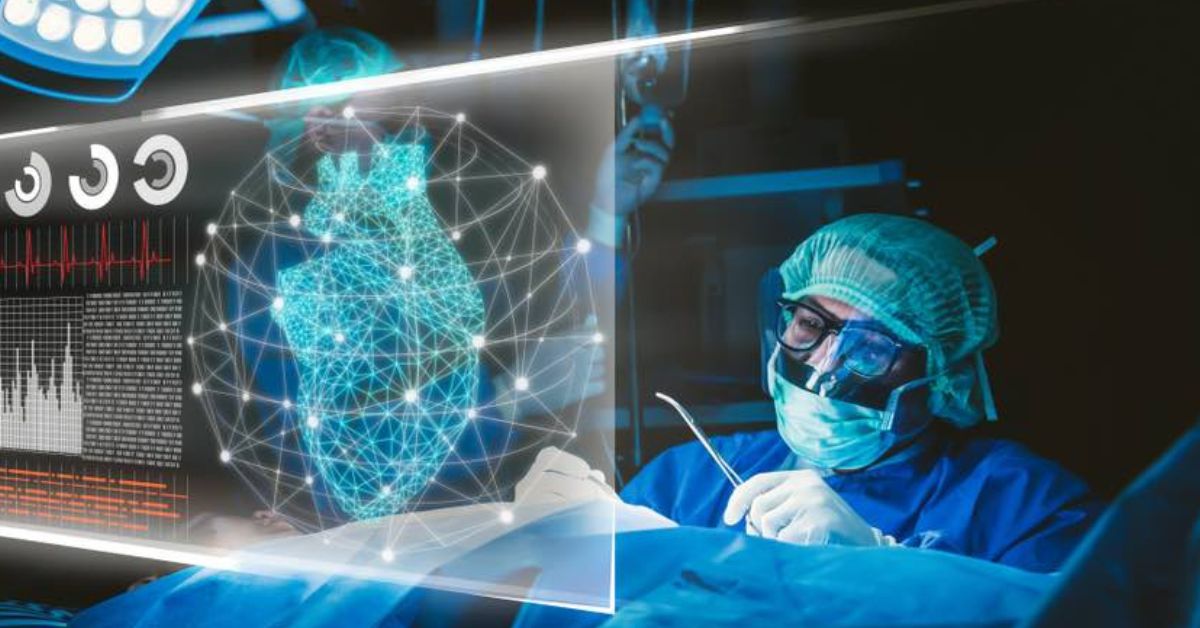
Artificial Intelligence (AI) is no longer just a buzzword—it’s a daily reality in medical care. From faster disease detection to personalized treatment plans, AI is reshaping how doctors diagnose and treat patients across the globe.
In 2025, the future of AI healthcare diagnostics is already here—and it’s saving time, saving money, and most importantly, saving lives.
🧠 What Is AI in Healthcare?
AI in healthcare refers to the use of machine learning algorithms, natural language processing (NLP), and computer vision to perform tasks that traditionally required human intelligence. These systems can analyze medical data, interpret images, predict outcomes, and even assist in real-time decision-making.
Think of AI as a digital assistant that enhances, not replaces, the doctor’s expertise.
🔬 Types of Diagnostics AI Can Improve
1. 🖼️ Medical Imaging (X-rays, MRIs, CT Scans)
AI can scan images with extreme precision, sometimes detecting anomalies doctors might miss.
-
Use Case: Early breast cancer detection via AI-enhanced mammograms
-
2025 Update: AI now interprets chest X-rays in under 30 seconds in emergency departments
2. 🧫 Pathology
AI analyzes blood smears, tissue samples, and biopsies for diseases like cancer, malaria, and infections—quicker than traditional lab methods.
-
Use Case: AI tools identifying cervical cancer in rural clinics with >95% accuracy
3. 📱 Symptom-Based Diagnostic Apps
AI-driven apps now provide real-time symptom assessment, guiding patients on whether to seek care or manage at home.
-
Popular Tools: Ada, Babylon Health, Symptoma
⚡ Benefits of AI Diagnostics in 2025
✅ Faster Results
AI can process thousands of data points in seconds, dramatically reducing diagnostic time for critical conditions.
✅ Higher Accuracy
Machine learning algorithms trained on millions of data samples can spot subtle patterns and rare conditions with high precision.
✅ Accessibility in Underserved Areas
AI-powered mobile tools and cloud-based platforms bring expert diagnostics to rural and low-resource settings.
Example: In Kenya and Nigeria, AI-assisted ultrasound devices help midwives detect pregnancy complications without needing a radiologist.
⚠️ Risks and Ethical Concerns
While the potential is massive, AI in healthcare also raises serious questions:
-
Bias in Algorithms: If trained on data from one population, AI may misdiagnose in others.
-
Data Privacy: Sensitive health data must be protected from breaches.
-
Over-Reliance on Tech: Clinicians must remain involved in interpreting results.
Regulators in 2025 are focusing more on transparency, audit trails, and requiring human oversight in high-stakes AI decisions.
🌍 How It’s Being Used Globally
🇺🇸 United States
Hospitals use AI for radiology, cardiology, and early-stage cancer screening. AI chatbots also reduce patient wait times.
🇪🇺 Europe
The EU mandates AI transparency, but adoption is strong in digital pathology and mental health diagnostics.
🌍 Africa
AI is making a real impact in rural health:
-
AI malaria diagnosis via smartphone microscopes
-
Disease surveillance using AI to predict outbreaks
-
Language-adapted symptom checkers for multiple dialects
🔮 What’s Next for AI Healthcare Diagnostics?
Here’s what to expect by 2030:
-
AI + Wearables: Real-time health alerts from your smartwatch
-
AI Doctors-on-Demand: Virtual consultations with near-human accuracy
-
Personalized Medicine: AI will suggest treatments based on your DNA
-
Federated Learning: AI models trained securely across hospitals without sharing raw data
✅ Conclusion: The Diagnosis Revolution Has Begun
AI is not replacing doctors—it’s amplifying their abilities. In 2025, AI healthcare diagnostics are already making care faster, fairer, and more precise.
But the future lies in responsible adoption, ensuring every patient—regardless of geography or income—benefits from this technology.
💡 Are you excited about AI in healthcare? Share your thoughts below or sign up for our newsletter to follow the future of health and tech.

Great post, very educating
ReplyDelete